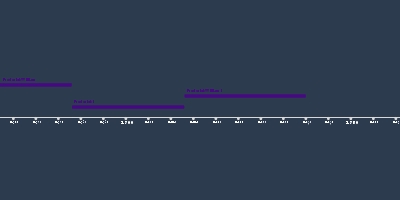1 Jul 1914 Jahr - July Crisis
Beschreibung:
On June 28, 1914, member of the radical group the Black Hand Gavrilo Princip killed Archduke Franz Ferdinand, heir to the Austro-Hungarian throne, and his wife Sophie in Sarajevo. He aimed for the unification of Yugoslavs free from Austria. The event led Europe into world war. In the early 20th century, war in the Balkans seemed inevitable, and the Ottomans had been forced to give up their European territories. Slavic groups wanted independence, and the threat of war loomed. Serbians were especially eager, and to block expansion, Austria-Hungary annexed Bosnia and Herzegovina.In the First Balkan War, Serbia along with Greece and Bulgaria attacked the Ottoman Empire then quarreled with Bulgaria over the spoils of victory. In the Second Balkan War, Bulgaria attacked the former allies. Austria intervened and forced Serbia to give up Albania. The Ottoman Empire in Europe had been destroyed. Balkan nationalists increased their demands for freedom from Austria-Hungary, which was view as a serious threat.
Ferdinand’s assassination created the July Crisis, a five-week period of intense diplomatic activity. Austria-Hungary concluded that Serbia was implicated and deserved punishment. It gave Serbia an unconditional ultimatum that would violate Serbian sovereignty, and when Serbia replied moderately but evasively, Austria declared war. Austria-Hungary had chosen war to stem the rise of hostile nationalism.
German chancellor Bethmann-Hollweg promised support for Austria-Hungary, which encouraged the prowar faction in Vienna to take a hard line against the Serbs at a time when moderation might still have limited the crisis. Serbia’s traditional ally Russia encouraged them to refuse Austrian demands. The diplomatic situation spiraled out of control as military plans and timetables began to dictate policy. Russia needed more time to mobilize its armies than Germany and Austria-Hungary and also could not face one without facing another. Nicholas II ordered full mobilization, practically declaring war. The German general staff’s Schlieffen Plan called for a quick victory over France after a lightning attack through neutral Belgium, which was the quickest way to reach Paris, before turning on Russia. Britain was outraged by their violation of Belgian neutrality and declared war on them. The speed of the July Crisis created a slew of reactions, and much of the public was pro-war. World War I had begun.
Zugefügt zum Band der Zeit:
Datum:
1 Jul 1914 Jahr
Jetzt
~ 111 years ago
